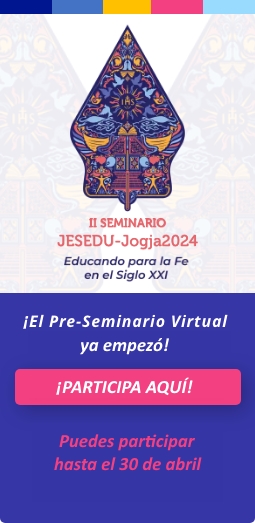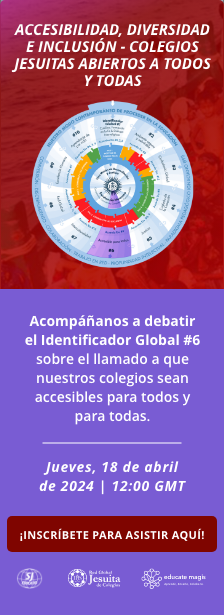Education contains a central challenge for the future: to allow various cultural expressions to co-exist and to promote dialogue so as to foster a peaceful society”. (Educating for Intercultural Dialogue in Catholic Schools, Vatican City, 2013)
Recently we shared an article on Interculturality in Jesuit Education and we asked you some questions and invited you to share what interculturality means to you, whether you think it is an important topic which should be brought into the classroom and whether this is something you are already working on with your students. The responses we have received so far from teachers in the Philippines, in Zimbabwe and in Chile are very interesting!
Interculturality in the classroom
Roland from Xavier School San Juan in the Philippines shared that for him “interculturality means our shared capacity and desire to understand each other’s cultural background or worldview. I believe this is badly needed in our time – knowing the religious and cultural intolerance happening both in local and global levels” He shared with us that in Xavier School they have designed unit plans for their Grade 11 students which follow the structure of Dialogue with the Self (understanding my worldview), Dialogue with God (exploring the Ignatian worldview) and Dialogue with Others (expanding the Church’s worldview). He highlighted critical thinking as a particular skill which is important in intercultural education and communication. Roland will be sharing some more information on the work they have been doing with us in the coming weeks.
Arthur from St. George’s College in Zimbabwe shared with us that although the school is located in a land with a colourful history with different cultures, these haven’t always acknowledged or respected each other. He shared with us the reality that while on the surface things seem to be ok, conversations about the shared history can often become awkward and uncomfortable and highlighted the need for respectful intercultural dialogue to be facilitated and perhaps also taught, beginning with an awareness and appreciation of diversity. Arthur believes that this can and should be incorporated into classroom subjects such as a recently added subject ‘Global Perspectives’.
David from Colegio San Ignacio Alonso Ovalle in Chile agreed that the topic of interculturality is incredibly relevant and important. He highlighted the need for and benefit of facilitating intercultural experiences and conversations for his students with students from other Jesuit schools across the world. An opportunity which, as a network of over 800 schools in 70 different countries, we are truly blessed with. David also mentions the Ignatian faith and pedagogy which is undoubtedly an intrinsic part of interculturality, and which can help us as Ignatian educators to develop and explore this topic further.
Continuing the conversation
The inputs from Roland, Arthur and David have been incredibly insightful and we have no doubt there are more of you who have interesting perspectives on the topic of interculturality in Jesuit education so let’s keep the conversation going! ‘Jesuit schools are committed to Interculturality’ is one of the 10 Global Identifiers outlined in A Living Tradition. How can we bring this commitment to our classrooms?
What does interculturality mean to you? Do you think this topic should be taught in our schools and why? Are there programs in your schools or lessons in your classrooms which already teach interculturality? And what intercultural skills or intercultural communication skills do you think we need to learn ourselves and teach our students? Please share your thoughts in this conversation so we can continue learning together.
Inicia sesión o Hazte miembro
para crear y ver comentarios

